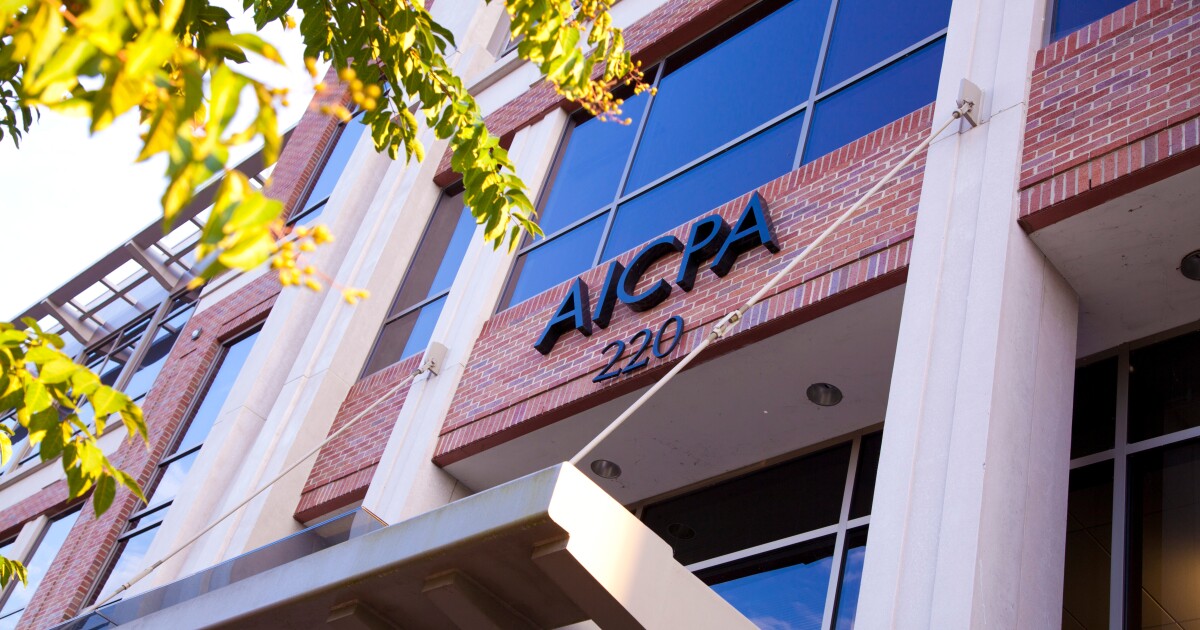The American Institute of CPAs and the National Association of State Boards of Accountancy have given their approval to new model legislation providing an alternative path to a CPA license in an effort to attract more people to the accounting profession.
The optional path aims to maintain public protection while offering additional flexibility and options for CPA candidates. The changes will add an extra pathway to CPA licensure requiring a baccalaureate degree, including an accounting concentration, along with two years of experience, and passage of the Uniform CPA Examination.
Other revisions to the model legislation, which can be used by states, include a shift from state-based mobility to an individual-based practice privilege that would maintain a CPA’s ability to practice across state lines with just one license. There’s also new safe harbor language allowing CPAs who were licensed under differing education, experience and exam requirements as of Dec. 31, 2024, to continue to have practice privileges under mobility.
The AICPA and NASBA proposed the changes to the UAA last September and an alternative path to CPA licensure in February.
“By aligning our model legislative framework with the laws recently adopted in certain states, we’re encouraging removal of outdated barriers and reaffirming our commitment to a truly mobile CPA profession,” said Susan Coffey, the AICPA’s CEO of public accounting, in a statement Wednesday. “Businesses today demand seamless practice across state lines, and this action provides legislators and regulators with a model under which CPAs can meet that need without disruption. This is how we protect the public while keeping the profession strong, relevant, and ready for what’s next.”
The additional path will be included in the amended Uniform Accountancy Act to be released early this summer by AICPA and NASBA. The UAA offers state legislatures and boards of accountancy a national model that can be adopted in whole or in part to meet the needs of each individual jurisdiction.
“NASBA and Boards of Accountancy remain committed to maintaining public protection while implementing these changes to the UAA,” said NASBA president and CEO Daniel Dustin in a statement. “We will continue to work closely with state boards as the new pathway and changes to CPA mobility are implemented.”
The new pathway envisions a wider role for experience to be determined at the jurisdiction level. Individual states will still need to formally enact legislation and/or adopt rules and regulations, depending on the jurisdiction, before candidates can pursue this path. To date, 14 states have done so.
The new pathway would be added to the existing pathways:
Post-baccalaureate degree with an accounting concentration plus one year of experience plus passage of the CPA Exam;
Baccalaureate degree with an accounting concentration plus 30 credits plus one year of experience + passage of the CPA Exam.
The updated edition of the UAA maintains that oversight and disciplinary authority over licensees continues with a state board of accountancy.
The AICPA and NASBA asked for feedback on the proposals in March, and the various comments on the proposals can be found on the NASBA and AICPA websites. They intend to continue to have discussions on maintaining the relevance of the UAA while also exploring the knowledge and skills needed for a newly licensed CPA to serve the public, promote public protection, and be positioned for a career as a CPA. The organizations said they’re discussing conducting a wide-ranging study that will include research and engagement with stakeholders, including regulators and the CPA profession.
As they begin this new phase, the AICPA and NASBA are also exploring opportunities for how to help CPAs navigate practice mobility as states enact legislation.


 Blog Post3 days ago
Blog Post3 days ago
 Economics1 week ago
Economics1 week ago
 Personal Finance7 days ago
Personal Finance7 days ago
 Accounting1 week ago
Accounting1 week ago
 Economics7 days ago
Economics7 days ago
 Economics1 week ago
Economics1 week ago
 Personal Finance1 week ago
Personal Finance1 week ago
 Finance7 days ago
Finance7 days ago










